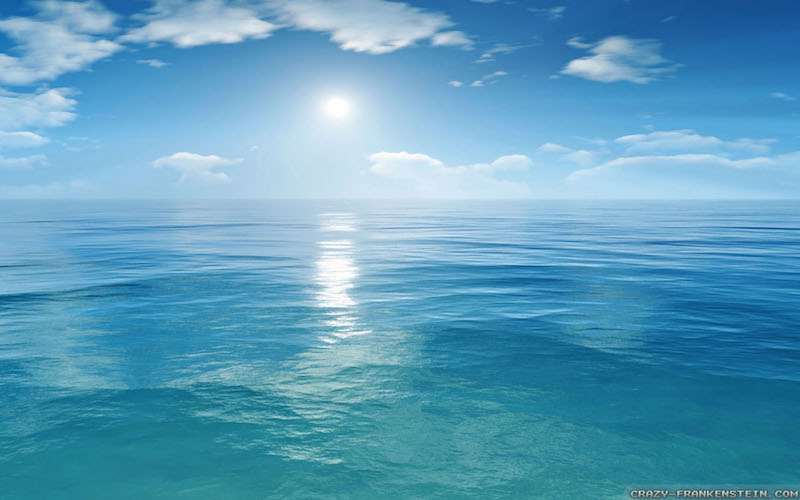At the Seashore
Jayne English
The land may vary more; But wherever the truth may be— The water comes ashore, And the people look at the sea. - Robert Frost
The sea predates us, and—judging by literature—its significance in our lives can’t be overstated. The sea represents brokenness, beauty, loneliness, our own inner depths, mystery, tragedy, and wisdom, to name some of the themes it has inspired. Despite this influence, Revelations tells us that one day there will no longer be a sea. This is notable because it's the reverse of the usual order. Usually we lose things here (loved ones, health), only to have them restored to us there. In the same way, we will give up heaven and earth for a new heaven and earth. But though we have the sea now, we will not have it at the end of time. Won't we miss it? The sea has had a vast affect on poets and writers. Their vision reflects our own encounters with the sea.
Pablo Neruda finds brokenness and a paradoxical beauty washing to shore in an assortment of debris:
Petals crimped up, cotton from the tidewash, useless sea-jewels, and sweet bones of birds still in the poise of flight.
And in another poem he speaks of his dependence on it: “I need the sea because it teaches me./I don’t know if I learn music or awareness,/if it’s a single wave or its vast existence.”
The Anglo-Saxon poet speaks of the sea in terms of loneliness. In the Old English poem, The Wanderer, the warrior reveals the wounds of exile:
Care is renewed for the one who must send very often over the binding of the waves a weary heart.
Cut off from loved ones and his own familiar language, he finds that the waters “bind” or imprison as they present an obstacle to returning home.
In an essay, Robin Ekiss says the sea’s “vastness suggests the infinite depths of the self or the unconscious, even danger, which also lurks beneath the waves.” We don’t doubt Melville’s insight into the human heart with passages like this from Moby Dick:
Consider all this; and then turn to this green, gentle, and most docile earth; consider them both, the sea and the land; and do you not find a strange analogy to something in yourself? For as this appalling ocean surrounds the verdant land, so in the soul of man there lies one insular Tahiti, full of peace and joy, but encompassed by all the horrors of the half known life. God keep thee! Push not off from that isle, thou canst never return!
Wallace Stevens sees the sea in terms of mystery and tragedy, calling it “The ever-hooded, tragic-gestured sea.” In “The Sea is Acquisitive,” Cecil Hemley considers how it takes lives to itself, saying “I am fearful for a man who loves/The sea too much.”
There are pleasant aspects of the sea. In “The Birth of Venus,” Hayden Carruth speaks imaginatively of a beauty and wisdom that originates in the sea:
She gave us beauty where our eyes Had seen but need, and we grew wise. For wisdom could not fail the gift Bestowed in that superb undress, Value consigned as loveliness From ocean’s riches, ocean's thrift.
Humankind has marked its emotional, physical, and spiritual rhythms by the sea. What does it mean that this treasured sea will no longer exist? Maybe God, who sometimes speaks in the language of imagery – stars, and wings, and branching trees—will close this age and open the next with the sumptuous metaphorical flourish of vanishing the sea. Isn’t the reason we can give the sea up and never miss it because of the relationship that will restore and surpass all that’s represented by its metaphors of brokenness and beauty?
